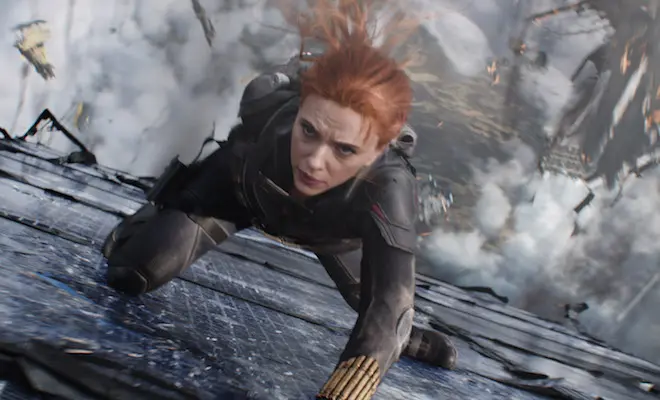 Even after fourteen years, I still have a difficult time fully accepting Neil Jordan’s adaptation of Interview With The Vampire. By its release in 1994, I had read the available installments in Anne Rice’s Vampire Chronicles. While I would not afford them the stature of literature, I found them to be absorbing reads that used the vampire mythology in an innovative manner to explore aspects of human character. The movie does a good job at bringing out the primal and sensual nature of the vampire but lacks many of the deeper overtones of the novel.
Even after fourteen years, I still have a difficult time fully accepting Neil Jordan’s adaptation of Interview With The Vampire. By its release in 1994, I had read the available installments in Anne Rice’s Vampire Chronicles. While I would not afford them the stature of literature, I found them to be absorbing reads that used the vampire mythology in an innovative manner to explore aspects of human character. The movie does a good job at bringing out the primal and sensual nature of the vampire but lacks many of the deeper overtones of the novel.
Considered an innovative turn upon release in 1976, Rice has the vampires be protagonists rather than merely anonymous villains. The “interview” is told by Louis (Brad Pitt in an early role) about his becoming an immortal vampire in the 1700s at the hands of Lestat (Tom Cruise). Lestat is charismatic, capricious, manipulative and often cruel in juxtaposition to Louis who is thoughtful, contemplative and brooding, traits that are rare among vampires. These characters play off each other to accentuate the evil nature of the undead with Louis having issues taking human life while Lestat revels in the game of feeding on his victims.
While I am not sure exactly how I envisioned Lestat, it definitely was not Tom Cruise. After multiple viewings, it is challenging to not see Cruise acting as Lestat rather than just being absorbed into the character portrayal. I do not know if this is an issue for those who have never read the novel and while Cruise does an admirable and often amusing job, his portrayal has always been a bit of a distraction for me. At the time of release, Pitt was not enough of a star to overshadow his role, and pleasantly I find his now larger stature does not intrude on repeat viewings of the movie.
Adding to Louis’ conflicts about his immortal nature, we are given Claudia (Kirsten Dunst in her first major role), a six year old girl turned into a vampire by Lestat as a companion/daughter for Louis. She matures intellectually and emotionally into a woman while retaining the body of an adolescent. While she easily takes to being a predator of humans, the opposition between her intellectual and corporal selves (she is too physically immature to even create another vampire) helps balance the romanticizing of the vampires with showing how “unnatural” they are.
Growing tired of Lestat’s obsessive control (this takes over 60 years in the novel but is an indeterminate time in the movie), Claudia and Louis strike out for Europe in the hopes of finding other of their kind. In Paris they encounter a group of Vampires led by Armand (Antonio Banderas). Armand, like Louis, seems to be an exception in that he seeks a deeper meaning from his existence while the rest of the Parisian vampires are hedonistic and maniacal. A conflict between the newcomers and the old world vampires builds to the climax of the movie.
My main criticism is one that is often leveled against cinematic adaptations; the overall feel of the book is really not captured for my tastes. Rice, who wrote the screenplay with Jordan, includes all the major characters and plot mechanisms (some details were changed but they do not affect the basic story). What is missing is the intimate flavor of the written narrative, and it is not just trying to encapsulate the transpiring of centuries into a few hours (this is not handled well) but the deeper feel of how the passage of time takes its toll upon the characters. While an effort is given to explicate Louis’ mindset, I find that you do not really get the profound sense of existential angst and boredom that accompany centuries of existence, which the novel portrays so well.
This adaptation is not a failure and taken outside the context of the novel works fairly well (especially considering the abysmal stature of the later Queen of the Damned). While I have slight issue with Cruise’s take on Lestat, I still appreciate his turn as the iconic vampire. Pitt, Dunst and Banderas give solid performances, and the film does a capable job at presenting the 18th and 19th centuries from the perspective of the undead (the Theater of the Vampires scene is very effective) with a good amount of violence, sexual overtones and tongue-in-cheek humor.
Warner Brothers bring Interview to Blu-ray with a 1080p VC-1 encoded transfer framed at its theatrically exhibited ratio of 1.85:1. In its favor, the print source is clean and lacking any obvious damage, but my gut response on first viewing is that the film looks flat and unexciting. The visual feel obviously tends towards being dark due to taking place at night, and the palette of the film works to accentuate this. Colors are based in brown, yellow and gray with deep blacks rarely utilized. While intentional, this choice does not make the movie something that shines in HD and rather produces a slightly washed out image.
Going hand in hand with the flatness of the image is a general softness. This appears to be due to the filming style and lighting choices rather than any digital post processing to clean up the transfer, as natural grain is abundant. Unfortunately grain sometimes becomes problematic with certain darker moments where it runs rampant. In these scenes, the noise on screen is so obnoxious that I thought there was some form of distortion before I was able to isolate the issue as grain. Thankfully these moments are exceptions.
Considering how unimpressed I was with my initial response to the Blu-ray image, I pulled out the DVD for evaluation. When compared to its standard def predecessor, the HD transfer shows improvement. Though the picture never tends towards the deepest of blacks, contrast is definitely improved. Contrast is really never an issue with the transfer, but any benefit is lost under the subdued colors and filming style. Detail also shows improvement over the DVD, but due to the visual approach is not something that you immediately find notable.
It is hard to rate this Blu-ray image since what we get is representative of the filmmaker’s intention but does not benefit overly from high def in an immediate visceral reaction. Compared to the best of catalog titles on Blu-ray, I find the image to be flat and lacking dimensionality, but this is as good as it has ever looked for home video. While definitely not a demo disc by any stretch, fans of the movie already know what to expect and the upgrade to high-def will provide subtle enhancements. Those never having viewed the movie before should go in with tempered expectations.
In a departure from their recent catalog Blu-ray releases, Warner does not supply a lossless audio track. The English Dolby Digital 5.1 provided is good (though the last DVD release provided an improved DTS track) but how much better could it have been if mastered in lossless audio? Maybe because the studio only used a single layer (BD25) rather than a dual layer disc (BD50), there was not room to include lossless audio or even surround mixes for other languages. The only other audio choices are 2 channel mixes for French and Japanese and a mono mix for Spanish. Subtitles are provided in English (SDH), French, Japanese and Spanish.
To its benefit, the Dolby Digital track has good separation between channels with an equal use of directionality. Dialog is consistently clear, and Elliot Goldenthal’s score along with pieces by Handel and Hayden are decently presented. What I find lacking is the reproduction in the high and low ends and the overall fullness of the audio. This critique is in relation to what other catalog titles have been able to accomplish with a lossless audio upgrade, so without a comparable track, it is hard to say how much improvement there might have been. Since there are catalog titles of lesser stature than this being graced with lossless audio, it seems that this is a missed opportunity. What we are given is acceptable though not overly impressive.
All the extras from the previous DVD releases are ported over here. Unfortunately there is not an abundance of depth with the commentary being the main feature of interest. All video is presented encoded in VC-1 at 480p/i.
Introduction (1:04): A short introduction with comments from Neil Jordan, Anne Rice and Antonio Banderas. This is basically a distraction as no useful information is given and half the runtime is taken up with scenes from the movie.
In the Shadow of the Vampire (29:43): This featurette is closer to a promotional video than anything resembling a documentary. It contains interviews with the director, author and actors but mostly skims the surface rather than delving into the depths of the production. It has a few moments of interest (FX artist Stan Winston’s being notable) but is mostly a fluff piece.
Trailer (2:36): Theatrical trailer presented in standard definition video with stereo sound.
Commentary with Director Neil Jordan : A very good commentary and the best extra included. Jordan navigates through the work to adapt the novel, Rice’s involvement in the script, the use of the different actors and details and issues with production. Fans of the film will find much of interest here to enhance their appreciation.
There are some moments of dropout but the commentary covers 90% of the film. If I had any complaint, and this is a total nitpick, it is that Jordan’s speaking style is very subdued. His even toned vocal approach can be a bit diverting and cause you to lose focus. That minor complaint aside this is a very worthwhile commentary.
It is a shame that there were never decent cinematic takes on the later entries in Rice’s Vampire Chronicles, but we can appreciate what we get with Jordan’s version of Interview With The Vampire. While I have my issues with this adaptation, it is still a fun movie to watch with good performances and much appropriate atmosphere throughout. Sadly, this Blu-ray from Warner does not live up to its high-def potential.
The video is hampered by its visual and filming style and does not benefit from high definition nearly as much as other catalog titles. While this is the best Interview has ever looked on home video, it will be a hard sell to convince owners of the current DVD to upgrade. Adding to this is the lack of lossless audio and the fact that the Dolby Digital track included is technically a downgrade from the DTS track on the previous DVD.
– Robert Searle


